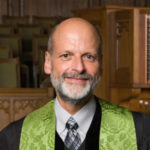 I invite you to take a few moments with me to reflect on today’s Upper Room Devotional below.
I invite you to take a few moments with me to reflect on today’s Upper Room Devotional below.
Thank you for sharing this early moment of your day with me, with God, and with the thoughts and words of this reading that I hope you will carry with you throughout the coming day and night.
Today’s Scripture:
Acts 16:6-15 New Revised Standard Version (NRSV)
Paul’s Vision of the Man of Macedonia
6 They went through the region of Phrygia and Galatia, having been forbidden by the Holy Spirit to speak the word in Asia. 7 When they had come opposite Mysia, they attempted to go into Bithynia, but the Spirit of Jesus did not allow them; 8 so, passing by Mysia, they went down to Troas. 9 During the night Paul had a vision: there stood a man of Macedonia pleading with him and saying, “Come over to Macedonia and help us.” 10 When he had seen the vision, we immediately tried to cross over to Macedonia, being convinced that God had called us to proclaim the good news to them.
The Conversion of Lydia
11 We set sail from Troas and took a straight course to Samothrace, the following day to Neapolis, 12 and from there to Philippi, which is a leading city of the district[a] of Macedonia and a Roman colony. We remained in this city for some days. 13 On the sabbath day we went outside the gate by the river, where we supposed there was a place of prayer; and we sat down and spoke to the women who had gathered there. 14 A certain woman named Lydia, a worshiper of God, was listening to us; she was from the city of Thyatira and a dealer in purple cloth. The Lord opened her heart to listen eagerly to what was said by Paul. 15 When she and her household were baptized, she urged us, saying, “If you have judged me to be faithful to the Lord, come and stay at my home.” And she prevailed upon us.
Tim’s Devotional Reflection for Today
The New Testament book of Acts is an account of the life of early Christianity. Much of the book has to do with the Apostle Paul and his activities. Like nearly everyone else in the Bible, Paul is always on the move, going from one place to the next sharing the Good News of God’s grace in Jesus Christ.
Our scripture reading for today from Acts 16 describes Paul as almost stuck. Things didn’t unfold as he had planned. He had planned to go to Asia, but that didn’t work out. Then Paul and his associates tried to go into Bithynia, but again that didn’t happen. So, they went down to Troas. By this time it’s beginning to look like Paul and his companions are without clear direction, nearly traveling in circles.
However, even when Paul appeared directionless to others, he still listened, trying to discern the next step. Paul perceived things that didn’t work out as he planned as a “no” — or at least a “not now,” but it didn’t stop him from pursuing his calling. He continued to listen and to wait for God’s prompting—deeply attuned to the leading of the Spirit. Because he was so attuned, he recognized the call to go to Macedonia.
It was a vision that Paul had during the night—a dream. In this dream, Paul saw a man from Macedonia standing before him. The man urged Paul to travel to Macedonia, saying, “Come over to Macedonia and help us!”
It is one of the places in Acts when Luke moves into the first person plural. He says, “When he had seen the vision, we immediately tried to cross over to Macedonia, being convinced that God had called us to proclaim the good news to them.” They went to Philippi, the leading city of the region, and found a place of prayer by the river on the Sabbath day. There they met some women and shared the Good News of God’s grace in Jesus. A businesswoman named Lydia, who was from Thyatira, became a Christian and she and her household were all baptized. She then extended an invitation for her home to become the base of the Christian movement in Macedonia.
Lydia was clearly a leader with her own successful business, her own home, and her own household. That household would have included family and most likely some servants. The entire household followed her and became baptized. Lydia’s leadership included spiritual leadership—both in the Philippian church and in her own family. Women’s spiritual leadership is legendary in its impact and not the only time we see it in the New Testament and the early church.
I enjoy reading the 16th chapter of Romans because it is so personal. Paul is greeting people in the Roman church whom he knows. It is interesting to note that of the twenty-six people who Paul singles out for his personal greeting, six were women. It shows us the tremendous influence that women had in the early church. In the male-oriented first century Palestine, it is telling that Paul could not describe the church without mentioning the significant role of women. One of the women Paul sends greetings to is named Junia, whom he says is a relative and is prominent among the apostles.
Lydia’s house became a center of Christian worship and outreach in Philippi, and Paul developed a close and loving bond with the church members there.
Later, when he wrote his letter to the Philippians, he expressed his gratitude in this way, “You Philippians indeed know that in the early days of the gospel, when I left Macedonia, no church shared with me in the matter of giving and receiving, except you alone” (Philippians 4:15).
No church shared with him and supported him … except the Philippians.
They were the generous ones.
The hospitable ones.
The faithful ones.
And it all started with Lydia, a woman who chose faith over fear.
What if Lydia hadn’t influenced her own household and other citizens of Philippi? What if she hadn’t opened her home to the apostles? What if she hadn’t exercised her leadership in her home and community? Would we even have Paul’s letter to the Philippians in our Bible?
What if Paul hadn’t been paying attention and attuned to God’s leading? What if Paul hadn’t been open to a change of plans?
Paul’s own spirit remained in a prayer-like state that enabled him to remain open to God’s leading. Paul was acutely attuned to the Spirit. Wherever his journeys took him, he was never out-of-touch with God’s purposes and plans.
What can we learn from this story? I think it’s that Paul is always in prayer, always listening for God’s leading. Even—and especially—when things are not working out as he planned or anticipated.
This is the kind of prayer that enables us to be more aware of God’s presence with us, God’s leading and direction, and God’s help in navigating the rough roads and the rough seas of our lives. It is also this continuous awareness of the presence of God that enables us to rest easy on the smooth parts of the journey as well.
We don’t often hear the full text of Reinhold Niebuhr’s “Serenity Prayer,” just the first stanza. I invite you to praye the entire prayer:
God, grant me the
Serenity to accept the things
I cannot change;
Courage to change the things I can; and
Wisdom to know the difference.
Living one day at a time;
Enjoying one moment at a time;
Accepting hardship
As the pathway to peace.
Taking as He did,
This sinful world as it is
not as I would have it.
Trusting that He will make
all things right
If I surrender to His will,
That I may be reasonably happy
in this life,
And supremely happy
With Him forever in the next. Amen.
[Reinhold Niebuhr, as cited in Ken Gire, ed., Between Heaven and Earth: Prayer and Reflections That Celebrate an Intimate God (HarperSanFrancisco, 1997), 93]
I am so grateful for you, for our church, and for the Love that will see us all through this very difficult time. Please stay safe and well and we’ll be together again in spirit tomorrow morning!
Grace and Peace,
![]()
Dr. Tim Bruster
Senior Pastor
Here’s more about this passage of scripture via Upper Room devotionals:
LET IT HAPPEN
Today I will share my faith when God opens the door.

